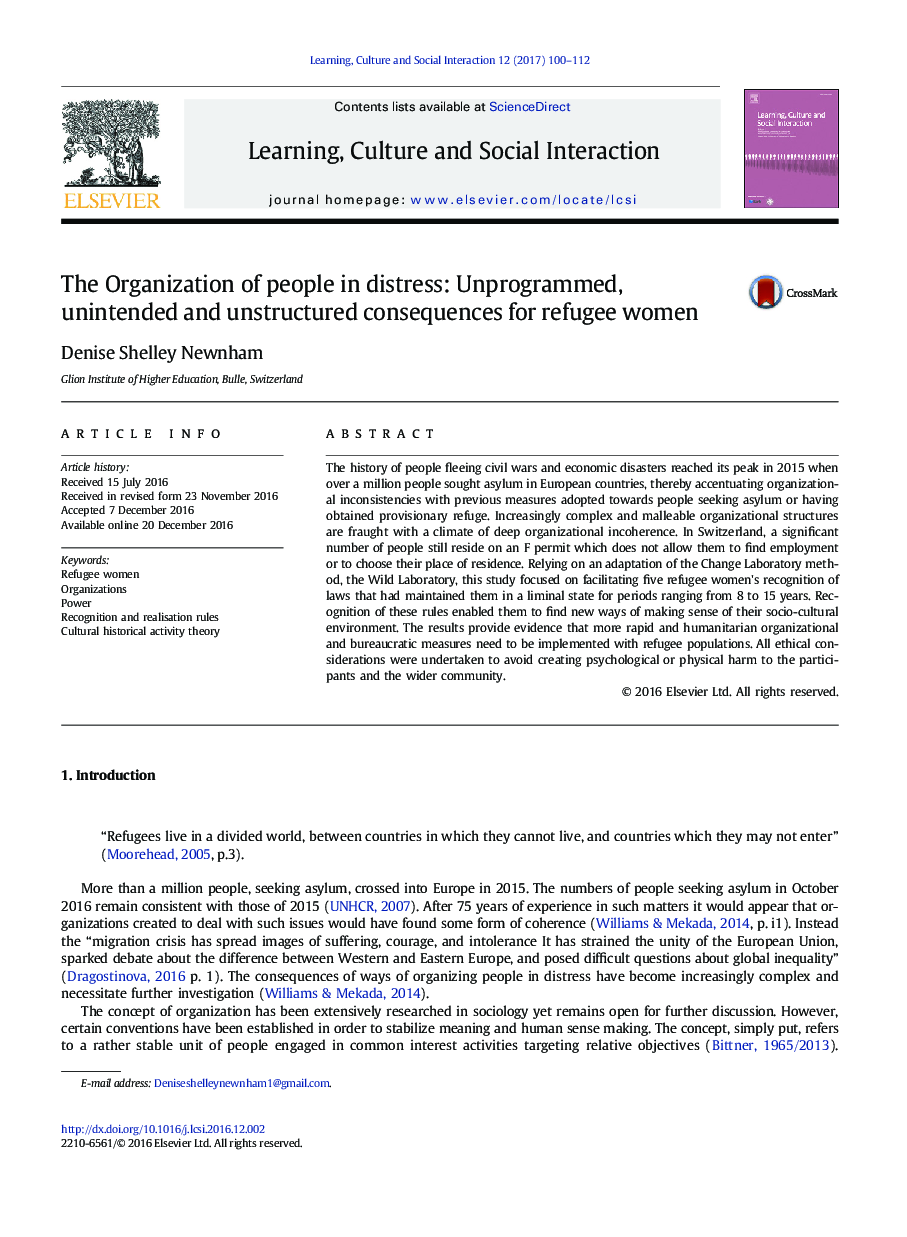| Article ID | Journal | Published Year | Pages | File Type |
|---|---|---|---|---|
| 4939927 | Learning, Culture and Social Interaction | 2017 | 13 Pages |
The history of people fleeing civil wars and economic disasters reached its peak in 2015 when over a million people sought asylum in European countries, thereby accentuating organizational inconsistencies with previous measures adopted towards people seeking asylum or having obtained provisionary refuge. Increasingly complex and malleable organizational structures are fraught with a climate of deep organizational incoherence. In Switzerland, a significant number of people still reside on an F permit which does not allow them to find employment or to choose their place of residence. Relying on an adaptation of the Change Laboratory method, the Wild Laboratory, this study focused on facilitating five refugee women's recognition of laws that had maintained them in a liminal state for periods ranging from 8 to 15Â years. Recognition of these rules enabled them to find new ways of making sense of their socio-cultural environment. The results provide evidence that more rapid and humanitarian organizational and bureaucratic measures need to be implemented with refugee populations. All ethical considerations were undertaken to avoid creating psychological or physical harm to the participants and the wider community.
